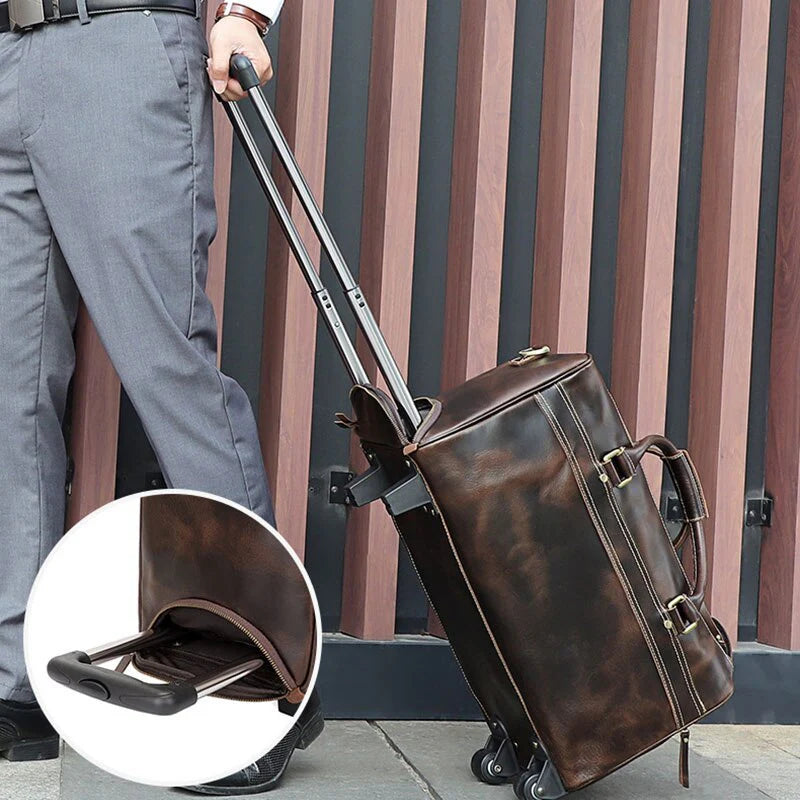Embarking on a journey, whether it's a weekend getaway or a grand international expedition, is an exhilarating experience that fills the heart with a sense of wonder and excitement. However, as thrilling as travel can be, it also comes with its fair share of uncertainties and potential risks. That's where travel insurance steps in, offering a safety net to safeguard your adventures and ensure that your dreams of exploration are not derailed by unexpected events.
In this comprehensive guide, we'll delve into the world of travel insurance, exploring its importance, the different types of coverage, and the key factors to consider when choosing the right policy for your needs. Whether you're a seasoned globetrotter or a first-time adventurer, this guide will equip you with the knowledge and confidence to navigate the world with a sense of security and peace of mind.
What is Travel Insurance?
Travel insurance is a type of insurance policy that provides financial protection and assistance to travelers in the event of unforeseen circumstances during their trip. It is designed to cover a wide range of potential risks, from medical emergencies and trip cancellations to lost or delayed baggage and emergency evacuations.
At its core, travel insurance is about mitigating the financial impact of unexpected events, allowing you to focus on the joyful aspects of your journey without the constant worry of what-ifs. By purchasing a comprehensive travel insurance policy, you can rest assured that you have a safety net in place, ready to support you should the unexpected occur.
Types of Travel Insurance Policies
Travel insurance policies come in various forms, each tailored to address specific needs and scenarios. Some of the most common types of travel insurance include:
- Trip Cancellation and Interruption Insurance: This coverage protects you from financial losses if you need to cancel or cut short your trip due to unforeseen events, such as illness, injury, or natural disasters.
- Medical and Emergency Assistance Insurance: This policy covers the cost of medical treatment, hospitalization, and emergency evacuation in the event of a medical emergency while traveling.
- Baggage and Personal Effects Insurance: This coverage provides reimbursement for lost, stolen, or damaged luggage and personal belongings during your trip.
- Travel Delay and Missed Connection Insurance: This policy covers the additional expenses you may incur due to flight delays, missed connections, or other transportation disruptions.
- Adventure Sports and Activities Insurance: For those who enjoy more thrilling pursuits, this specialized coverage protects you while participating in activities like skiing, rock climbing, or water sports.
- Rental Car Damage and Liability Insurance: This coverage protects you from financial liability and the cost of repairs in the event of an accident while renting a car during your travels.
By understanding the different types of travel insurance policies, you can tailor your coverage to your specific needs and ensure that you are adequately protected throughout your journey.
Why You Need Travel Insurance
Traveling, whether for business or pleasure, inherently carries a certain degree of risk. From unexpected medical emergencies to flight cancellations and lost luggage, the potential for disruptions and financial setbacks is ever-present. That's where travel insurance steps in, providing a safety net to safeguard your adventures and give you the peace of mind to fully immerse yourself in the experience.
Protection Against Unexpected Events
One of the primary reasons to invest in travel insurance is the protection it offers against unexpected events. Medical emergencies, natural disasters, political unrest, and other unforeseen circumstances can not only derail your travel plans but also result in significant financial burdens. With a comprehensive travel insurance policy, you can rest assured that you'll have the necessary support and coverage to navigate these challenges, minimizing the impact on your trip and your wallet.
Financial Security While Traveling
Traveling can be an expensive endeavor, with costs ranging from flights and accommodations to activities and dining. Without travel insurance, a single unexpected event can quickly escalate into a financial nightmare, leaving you responsible for the entire cost. Travel insurance, on the other hand, provides a financial safety net, covering expenses such as trip cancellations, medical bills, and lost or stolen belongings, ensuring that you don't have to dip into your savings or incur debt to cover these unexpected costs.
Peace of Mind
Embarking on a journey should be a time of excitement and exploration, not constant worry about what could go wrong. By investing in travel insurance, you can enjoy your travels with a greater sense of security and peace of mind. Knowing that you have a reliable safety net in place can alleviate the stress and anxiety that often accompanies travel, allowing you to fully immerse yourself in the experience and create lasting memories.
What Travel Insurance Typically Covers
Travel insurance policies are designed to provide comprehensive coverage for a wide range of potential scenarios and risks that travelers may encounter. While the specific inclusions can vary between providers and policy types, there are several common areas that are typically covered by travel insurance:
Medical Emergencies
One of the most crucial aspects of travel insurance is the coverage it provides for medical emergencies. This can include expenses related to hospitalization, outpatient treatment, prescription medications, and even emergency medical evacuation to the nearest suitable medical facility or your home country.
Trip Cancellation or Interruption
Travel insurance can reimburse you for non-refundable expenses, such as airfare, hotel reservations, and tour bookings, if you need to cancel or cut short your trip due to unforeseen circumstances, such as illness, injury, or a family emergency.
Lost or Delayed Baggage
If your luggage is lost, stolen, or delayed during your travels, travel insurance can provide reimbursement for the replacement of essential items or the cost of purchasing necessary toiletries and clothing while you wait for your belongings to be recovered.
Flight Delays or Cancellations
In the event of a flight delay or cancellation, travel insurance can cover the additional expenses you incur, such as the cost of rebooking flights, hotel stays, and meals.
Emergency Evacuation
In the case of a natural disaster, political unrest, or other emergency situations, travel insurance can provide coverage for the cost of an emergency evacuation to a safe location or your home country.
By understanding the comprehensive coverage offered by travel insurance, you can ensure that you are adequately protected against a wide range of potential risks, giving you the confidence to explore the world without worrying about the financial implications of the unexpected.
What's Not Covered by Travel Insurance
While travel insurance provides a robust safety net for a variety of situations, it's important to be aware that there are certain exclusions and limitations to the coverage. Knowing what is not covered can help you make informed decisions about your policy and avoid any unpleasant surprises should you need to file a claim.
Common Exclusions
Typical exclusions in travel insurance policies include pre-existing medical conditions, participation in high-risk or extreme sports and activities, and travel to areas with active travel advisories or warnings. Additionally, some policies may not cover losses due to acts of war, terrorism, or civil unrest.
Pre-existing Conditions
Many travel insurance policies have specific exclusions or limitations when it comes to pre-existing medical conditions. These are often defined as any condition for which you have sought medical treatment or advice within a certain timeframe prior to purchasing the policy. It's essential to review the policy's definition of pre-existing conditions and understand any potential exclusions or requirements for coverage.
Extreme Sports and Activities
If your travel plans include participating in adventure sports or other high-risk activities, such as skydiving, rock climbing, or bungee jumping, you may need to purchase a specialized policy or add-on coverage to ensure that you are adequately protected. Standard travel insurance policies often exclude these types of activities.
By familiarizing yourself with the common exclusions and limitations of travel insurance, you can make an informed decision about the coverage you need and ensure that your policy aligns with your travel plans and activities.
How to Choose the Right Travel Insurance Policy
Selecting the right travel insurance policy can be a daunting task, given the wide range of options available in the market. To ensure that you have the appropriate coverage for your needs, consider the following factors when choosing a travel insurance policy:
Assessing Your Needs
Start by evaluating your specific travel plans and the potential risks you may face. Consider factors such as the destination, the duration of your trip, the activities you'll be engaging in, and any pre-existing medical conditions you or your traveling companions may have. This assessment will help you determine the coverage you need and the level of protection required.
Comparing Different Policies
Once you have a clear understanding of your needs, research and compare various travel insurance policies from different providers. Look for factors such as coverage limits, deductibles, exclusions, and the overall cost of the policy. It's also important to read the fine print and understand the terms and conditions to ensure that the policy meets your expectations.
Reading the Fine Print
When reviewing travel insurance policies, pay close attention to the fine print. Understand the policy's definitions, exclusions, and any limitations on coverage. This will help you avoid any unpleasant surprises should you need to file a claim.
By carefully considering your needs, comparing different policies, and thoroughly reviewing the fine print, you can ensure that you select the travel insurance policy that provides the most comprehensive and appropriate coverage for your upcoming adventures.
When to Buy Travel Insurance
Timing is a crucial factor when it comes to purchasing travel insurance. The optimal time to secure your coverage can vary depending on your specific travel plans and the type of policy you're interested in.
Timing Considerations
Generally, it's recommended to purchase travel insurance as soon as you've made your initial travel arrangements, such as booking your flights or accommodating reservations. This ensures that you have coverage in place for any unforeseen events that may occur before your departure, such as trip cancellations or delays.
For certain types of coverage, such as trip cancellation insurance, it's important to note that there may be a waiting period before the policy becomes effective. This means that you'll need to purchase the policy within a specific timeframe, often 10-15 days, to be eligible for full coverage.
Last-Minute Options
While it's ideal to purchase travel insurance well in advance, there are still options available for those who need coverage at the last minute. Many providers offer "cancel for any reason" policies that can be purchased closer to the departure date, although the coverage may be more limited and the premiums higher.
Regardless of when you decide to purchase your travel insurance, it's crucial to do so as soon as possible to ensure that you have the necessary protection in place for your upcoming journey.
The Cost of Travel Insurance
The cost of travel insurance can vary significantly depending on a variety of factors, including the type of coverage, the duration of your trip, your age, and the destination(s) you'll be visiting.
Factors Affecting Price
Some of the key factors that can influence the cost of travel insurance include:
- Trip Duration: Longer trips generally require higher premiums, as the risk of unexpected events increases with the length of the journey.
- Traveler Age: Older travelers may pay higher premiums due to the increased likelihood of medical issues or other age-related risks.
- Destination(s): Travel to certain regions or countries may be considered higher-risk, resulting in higher insurance premiums.
- Coverage Limits: The higher the coverage limits, the more expensive the policy will be.
- Deductibles: Policies with lower deductibles typically have higher premiums, while higher deductibles can lower the overall cost.
Ways to Save Money on Travel Insurance
While the cost of travel insurance is an important consideration, there are several strategies you can employ to potentially save money on your policy:
- Compare Quotes: Shop around and compare quotes from multiple insurance providers to find the best deal.
- Bundle Policies: Some insurers offer discounts if you purchase multiple policies, such as combining your travel insurance with your homeowner's or renter's insurance.
- Consider Group Coverage: If you're traveling with a group, you may be able to take advantage of group travel insurance policies, which can be more cost-effective than individual policies.
- Opt for Higher Deductibles: Choosing a policy with a higher deductible can significantly reduce the overall premium cost.
- Explore Membership Discounts: Check if you're eligible for any discounts through your employer, credit card, or membership organizations.
By understanding the factors that influence the cost of travel insurance and exploring ways to save, you can find a policy that provides the coverage you need without breaking the bank.
Making a Travel Insurance Claim
In the event that you need to file a claim with your travel insurance provider, it's important to understand the process and be prepared with the necessary documentation. Following the proper steps can help ensure a smooth and successful claim experience.
Steps to File a Claim
- Notify Your Insurance Provider: As soon as you experience an event that may be covered by your travel insurance policy, contact your provider and inform them of the situation.
- Gather Required Documentation: Depending on the type of claim, you may need to provide various documents, such as receipts, medical records, police reports, or proof of trip cancellation or interruption.
- Complete the Claim Form: Your insurance provider will likely have a specific claim form that you'll need to fill out, detailing the nature of your claim and the expenses you're seeking reimbursement for.
- Submit the Claim: Once you've gathered all the necessary documentation, submit the completed claim form and supporting materials to your insurance provider, either online, by mail, or through their designated channels.
Required Documentation
The specific documentation required for a travel insurance claim can vary depending on the type of coverage and the nature of the incident. However, some common documentation that may be requested includes:
- Medical records and bills
- Receipts for expenses related to trip cancellation, interruption, or delays
- Police reports for lost, stolen, or damaged belongings
- Proof of travel arrangements, such as airline tickets or hotel reservations
- Receipts for replacement items or emergency purchases
Tips for a Successful Claim
To increase the likelihood of a successful claim, consider the following tips:
- Act Promptly: Report any incidents or file claims as soon as possible, as many policies have time limits for submitting claims.
- Keep Detailed Records: Maintain thorough documentation of all expenses and events related to your claim.
- Communicate Effectively: Stay in close contact with your insurance provider and respond to any requests for additional information or documentation in a timely manner.
- Understand Your Policy: Familiarize yourself with the terms and conditions of your travel insurance policy to ensure that your claim is in line with the coverage provided.
By following the proper procedures and being prepared with the necessary documentation, you can navigate the claims process with confidence and increase your chances of a successful outcome.
Popular Travel Insurance Providers
The travel insurance market is populated by a diverse array of providers, each offering a unique set of policies and coverage options. Familiarizing yourself with some of the top travel insurance companies can help you make an informed decision when selecting the right policy for your needs.
Overview of Top Companies
Some of the most well-known and reputable travel insurance providers include:
- Allianz Global Assistance: A leading provider of travel insurance and assistance services, offering a wide range of coverage options and 24/7 emergency support.
- Travel Guard: A subsidiary of AIG, Travel Guard is known for its comprehensive travel insurance policies and extensive coverage for medical emergencies, trip cancellations, and more.
- World Nomads: Catering to adventurous travelers, World Nomads specializes in policies that cover a variety of outdoor activities and sports, as well as medical emergencies and trip disruptions.
- Travelex Insurance Services: Travelex offers a diverse portfolio of travel insurance products, including coverage for trip cancellations, medical expenses, and baggage protection.
- Seven Corners: Recognized for its flexible and customizable travel insurance plans, Seven Corners caters to a wide range of travelers, from leisure vacationers to long-term international explorers.
Pros and Cons of Each Provider
When evaluating different travel insurance providers, it's important to consider the pros and cons of each option:
Pros:
- Comprehensive coverage options
- 24/7 emergency assistance
- Positive customer reviews and claims satisfaction
- Flexible and customizable policies
Cons:
- Varying levels of coverage and policy limits
- Potential exclusions or limitations on certain activities
- Differences in pricing and premium costs
- Varying levels of customer service and claims processing efficiency
By researching and comparing the offerings of these top travel insurance providers, you can make an informed decision that aligns with your specific travel needs and budget.
Special Considerations for Travel Insurance
As you navigate the world of travel insurance, there are a few special considerations that you should keep in mind to ensure you have the appropriate coverage for your unique circumstances.
COVID-19 and Travel Insurance
The COVID-19 pandemic has significantly impacted the travel industry, and it has also influenced the coverage provided by many travel insurance policies. It's essential to carefully review the policy details to understand how your provider handles claims related to COVID-19, including potential exclusions, coverage for trip cancellations due to illness, and any special provisions or requirements.
Long-Term Travel Insurance
For those embarking on extended or indefinite travel, such as digital nomads or long-term backpackers, traditional travel insurance policies may not be the best fit. In these cases, you may want to explore specialized long-term travel insurance options that provide coverage for extended periods, often with more flexible terms and conditions.
Group Travel Insurance
If you're traveling with a group, such as a family or




